We’re warning you in advance that some of this may be unpleasant. And if you’re heading into the skies, you might want to pack a lunch as we just did.
News this weekend was concerning both professionally and personally. With two of Beat of Hawaii’s editors in the Hawaii skies throughout this next week and reviews forthcoming, the news was concerning when the global leader in airline catering, Gate Gourmet, was just hit with some concerning safety violations by the state of Hawaii. Adding to that is the closure of a well-regarded Honolulu eatery and another restaurant on Maui that includes gross details.
Gate Gourmet Honolulu.
This may have slipped by us if only because the state issued Gate Gourmet a yellow warning placard rather than shutting down the giant airline caterer entirely. But the violations were concerning nonetheless, and we wanted to share them with you. The sheer magnitude of potential problems at the largest airline caterer is worrisome. Clearly, airlines won’t be happy to read of this either, as they are the ones serving passengers the food prepared by the caterer.
Gate Gourmet says it “is the leading global provider of airline catering solutions and provisioning services for airlines, both in-flight at over 200 airports as well as at airport lounges. From menu design through execution and delivery, our passion is giving our airline customers and their passengers an exceptional experience.”
But on November 2, the Hawaii Health Department performed a routine inspection at the Gate Gourmet Honolulu Airport adjacent facility. Gate Gourmet received multiple violations, as reported by the Hawaii DOH, as a result of that inspection, including the following:
Violation 1: Proper cold holding temperatures. “Walk in refrig. approx 48 degrees F.” DOH “requires that the temperature be “maintained at 41 degrees Fahrenheit or below.”
Violation 2: Adequate hand-washing facilities supplied and accessible. The state reported that the “Kitchen hand sink (had) no paper towels.”
Violation 3: Food contamination. The Department of Health observed, “Water dripping onto food production area.” That was a result of water that emanated from an air conditioning drain line.
Is this temperature violation serious?
Restaurant refrigerators should properly maintain 40 degrees F or lower at all times. That range is considered essential to keep food safe and prevent the rapid growth of bacteria that occurs at higher temperatures. Issues when refrigerators aren’t cold enough include:
Bacterial Growth: At temperatures above 40°F, the environment for rapid bacterial growth exists. The FDA requires restaurant refrigerators to be set at 40°F or below, although most commercial refrigerators are set at 38°F. This provides a small buffer zone before higher temps wherein bacterial growth can become rapid.
Food spoilage: Warmer temps accelerate food spoilage, especially in dairy, meats, and produce.
Reduced food quality: The appearance, taste, and overall quality of food are negatively impacted by higher temperatures. With airline food being challenging enough in any event, this can further reduce the dining experience for travelers.
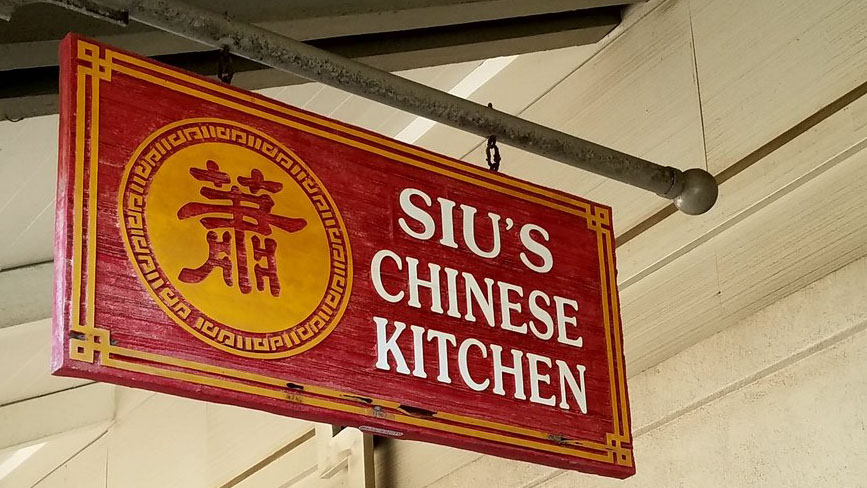

Siu’s Chinese Kitchen, Kahului.
The state Department of Health responded to a specific complaint that was filed and then subsequently performed an inspection on November 2, after which they closed the restaurant with a dreaded red placard. Siu’s is located in the Maui Mall Village, 70 E Kaahumanu Avenue, Kahului.
Violation: Public health hazard. Cockroach infestation in food products.
The complaint originated from a report alleging that they “saw a cockroach being mixed into noodles. They alleged that there was a roach infestation.
Following the inspection, the restaurant was immediately closed by the DOH for a “public health hazard.”
“Live roaches were observed at the buffet line near the point of sale area, at 3-comp. sink area, on the walls, and on food. An egg casing was observed in a prep. chill. A small, live roach was observed in a flour container. A dead roach was observed on a rice scoop. There were multiple concentrations of live roaches inside cooking equipment… Food is not safe.”
Hawaii Department of Health
Sui’s will remain closed until they are permitted to resume operations once the offenses are resolved. The state said that before being “allowed to start operations, the facility needs to control current roach activity, provide a pest control treatment and monitoring program to address the current violations and future operations, clean up the kitchen – clean and remove debris and grease build-up, remove/organize clutter in the kitchen/storage areas/bathroom/food service area, cover food/drinks in closed containers to prevent pest entry, remove and clean-up dead roaches and egg casing. Discard broken storage containers. The establishment will also need to start sealing or covering entry points to minimize pest entry. The screen in the back exit is broken, and there are several cracks in walls/wood trimmings where roaches were observed.”
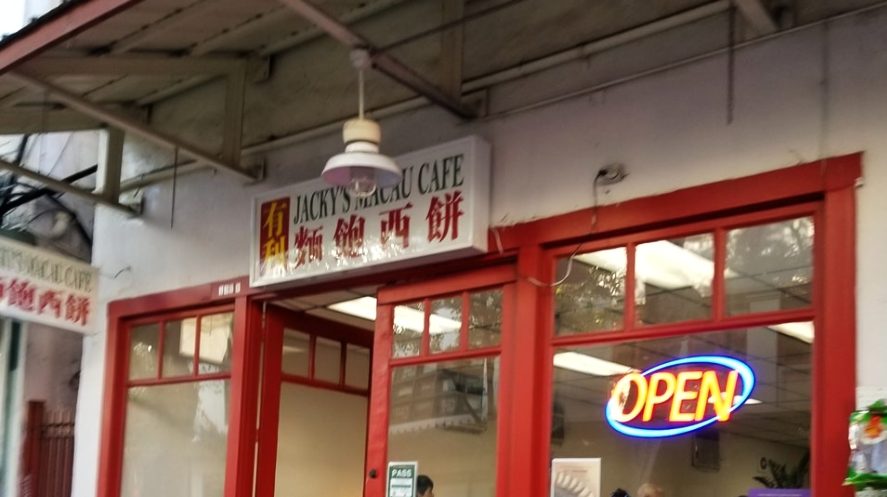

Jacky’s Macau Cafe, Chinatown Honolulu
A routine inspection of the well-reviewed Jacky’s Macau Cafe in Chinatown resulted in the sudden closure of the restaurant by the Hawaii Department of Health.
Violation 1: Lack of proper refrigeration. DOH observed potentially hazardous foods not maintained at or below 41 F in the walk-in refrigerator. The state said it “highly recommend(s) discarding food items” until the refrigerator maintains food at or below 41 F.
Violation 2: Inaccessible hand washing. The hand-washing sink, which must be available at all times, was instead blocked by a large bucket.
Violation 3: Lack of sanitization. The Hawaii DOH observed “No sanitizer within the establishment. Equipment not being sanitized. Food contact surfaces are to be cleaned and sanitized.
Violation 4: No pets in kitchen violation. A pet was found in the “restaurant sink.” The state said a violation of its rules related to insects, rodents, and animals occurred. The inspector “observed a live pet turtle in the dump sink in the kitchen.
Get Breaking Hawaii Travel News
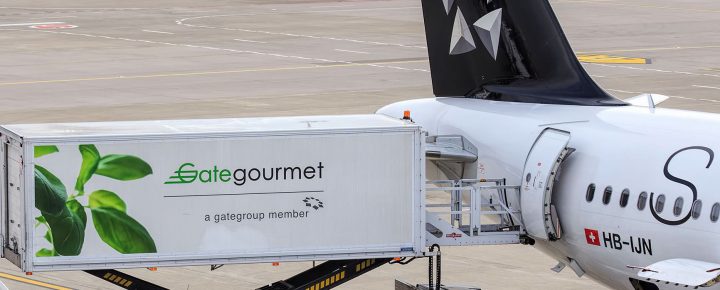
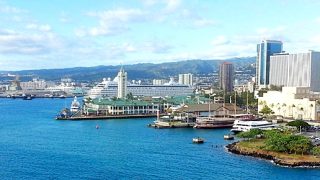
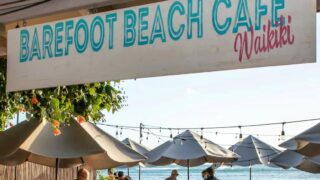

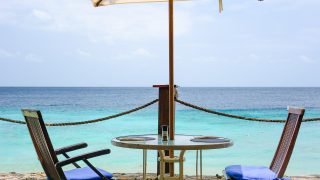

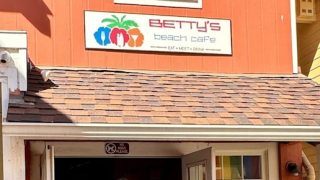
Glad we eat at Denny’s and the Yard House when we are in Waikiki.
Thank You for exposing this !!! Some airport food workers really do not care, because they think they will never see those same airport travelers again. I got extreme food poisoning on August 1, 2008, enroute to Hawaii, in the Denver Airport. It’s a date I’ll never forget, because my intestines haven’t been the same since. I almost died. I could barely make it back home to Hawaii. I was in bed for a week, and taking both Cipro & Flagyl antibiotics. Several gastroenterologists said I got permanent “IBS” = “Irritable Bowel Syndrome”. It’s horrible & life-changing.
I wonder if the turtle was a pet or if they were going to make soup out of it? That roach infestation sounds awful.
I thought the same of the turtle and the dog.
I didn’t see any mention of a dog in the article. The pet they mentioned was the turtle.
Simple solution more inspections like monthly will help.
Cockroaches are nasty. A turtle rather less so, but I’m sure the inspector had an “Am I really seeing this?” moment…
I wonder if anyone makes a thermometer with an alarm function that will sound an alarm (and perhaps send a notification to email/text) if a set temperature is exceeded? Seems like someone who could do that reliably and inexpensively (they’re putting the internet into light bulbs for goodness sake) could clean up… especially if something like that were made a requirement after that sort of violation…
Hi Jeff.
Good points. Editor Jeff owns a commercial refrigerator and reports that the temperature alarm is both loud and persistent. So not sure about that one.
Aloha.
They do make such warning systems for when the fridge or freezer systems go out of their required temperature ranges. We had them at the schools I’ve worked in. They are very helpful after hours and have helped save a lot of food from going bad. We were able to get it moved over right away.
Yes… the do make electronic thermometers that give digital reading to an IPad. We have them at my work.
These types of violations at restaurants and food handlers is what you commonly expect in the third world. Disturbing that it is happening in the U.S.
I’m thinking of going to Maui. Has the recent fire affected the air or food quality considering the damage to the soil and plants? Does the wind pickup the ash and distribute it over the islands crops, trees and beaches?
And is it safe to go there as we did before the fire?
Sara S.
There has not been any mention of air or food quality. But my common sense tells me that there are trade winds on Maui. All individuals that are allowed to be on the soil where the fires took place wear protective clothing/gear. The trade winds, just as any winds blow Everywhere. Look at the Canadian fires that landed in Florida air! But, the tourist industry will never agree to advertise that! Food source: During covid, all over the world, many workers were laid off, same as Maui FIre, employees are still overworked. My experience is that any employee that is overworked, will become disgruntled, and uncaring about the people that they HAVE to serve. They already broadcast on social media to stay away! my 2 cents
Although, as warned an unpleasant Subject, so grateful for the advisory as it only goes to show, one must be vigilant and without the BOH, blowing the whistle on violators, tourist and local alike would be I’ll or worse. Thank you, a hui Hou.
Hi Randy.
Thanks. We are glad the health department is doing its job.
Aloha.